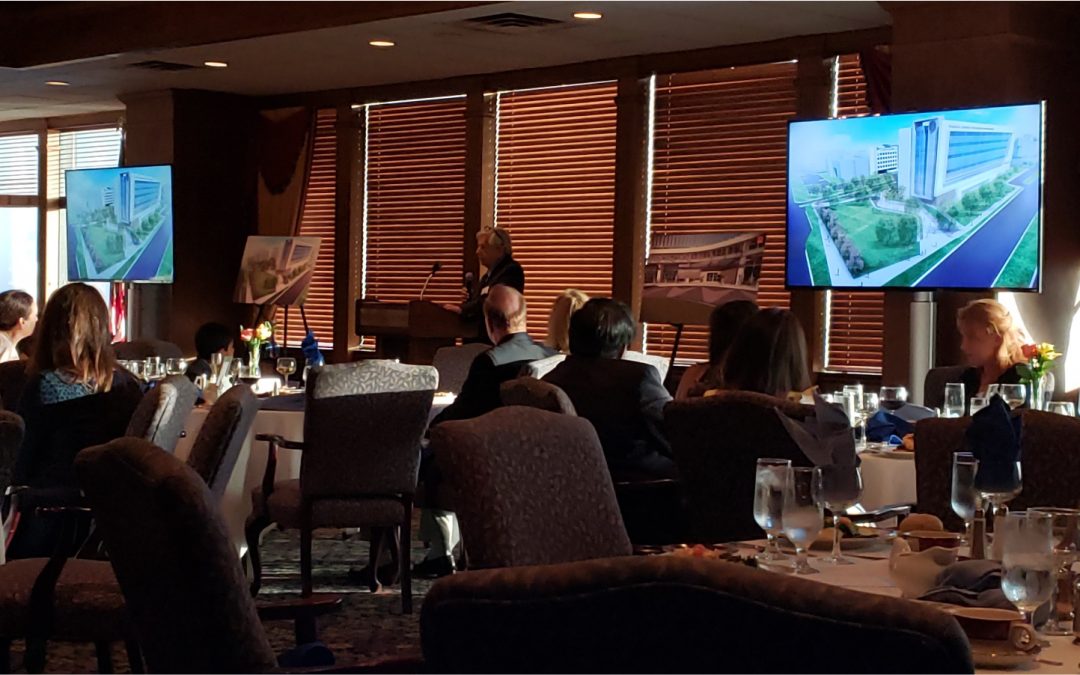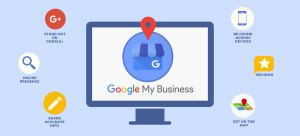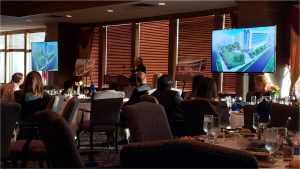Two-Hour Lunch or Dinner Educational Seminar For Self or Community Partners.
Objective: Create a relaxed and enjoyable environment for prospects to learn about you or your partner’s business & business offerings.
Examples of educational seminars include those that focus on investing, marketing, personal finance, real estate, and others specifically focused on providing new understanding and/or tips.
Here’s a step-by-step guide along with a comprehensive checklist:
Pre-Event Preparation (2-4 Weeks Prior)
- Define the Seminar Objective: Clearly outline the purpose of the seminar, whether it’s to educate about a specific topic, showcase your services, or build client relationships.
- Select Date, Time, and Venue: Choose a suitable date and time that works for both your clients and your professional partner’s clients. Book a comfortable and appropriate venue with sufficient space and audio-visual equipment.
- Create the Agenda: Develop a detailed agenda that includes the topics to be covered, speakers, presentation duration, Q&A sessions, and breaks.
- Invite Speakers: Identify knowledgeable speakers on the chosen topic, which may include yourself, your professional partner, and any guest experts. Confirm their availability and provide them with the agenda.
- Promote the Event: Create promotional materials (flyers, emails, social media posts) to inform and invite your clients and your partner’s clients. Encourage RSVPs to gauge attendance.
- Prepare Presentation Materials: Collaborate with the speakers to create engaging and informative presentation materials (slides, handouts, etc.).
Week of the Event
- Confirm Details: Reconfirm the event details with the venue, speakers, and any vendors (catering, tech support).
- Finalize Guest List: Confirm the number of attendees to make arrangements for seating, catering, and materials.
- Prepare Welcome Packets: Create welcome packets for attendees, including a copy of the agenda, notepads, pens, and any relevant brochures or promotional materials.
- Set Up the Venue: Arrive early on the event day to ensure the venue is set up properly, including seating, signage, audio-visual equipment, and any displays or promotional materials.
Event Day
- Registration: Have a registration desk where attendees check-in, receive their welcome packets, and get name tags.
- Welcome and Introduction: Start the event on time with a warm welcome, introduce yourself, your partner, and the agenda for the day.
- Presentations: Follow the agenda, allowing each speaker to present their topic. Ensure they stay within their allocated time.
- Engagement: Include interactive elements such as Q&A sessions after each presentation, encouraging audience participation and discussion.
- Breaks: Schedule short breaks for networking, refreshments, and restroom breaks.
- Feedback: Collect feedback from attendees through surveys or comment cards.
Post-Event
- Follow-Up: Send a thank-you email to attendees, share the presentation materials, and express your interest in future collaboration.
- Review and Improve: Gather feedback from speakers and attendees to evaluate the event’s success and identify areas for improvement for future seminars.
By following this plan and checklist, you’ll have a well-organized and successful educational seminar for your clients and your professional partner’s clients.
MATERIAL LINKS






